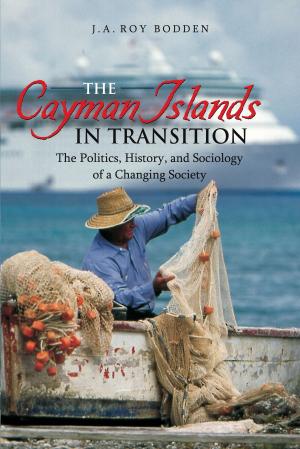Dragon in the Caribbean: China's Global Re-Dimensioning - Challenges and Opportunities for the Caribbean
Nonfiction, Social & Cultural Studies, Political Science, Government, Local Government, Politics, Economic Policy, International, International Relations| Author: | Richard L. Bernal | ISBN: | 9789766378707 |
| Publisher: | Ian Randle Publishers | Publication: | April 29, 2014 |
| Imprint: | Language: | English |
| Author: | Richard L. Bernal |
| ISBN: | 9789766378707 |
| Publisher: | Ian Randle Publishers |
| Publication: | April 29, 2014 |
| Imprint: | |
| Language: | English |
Since the beginning of the twenty-first century, China’s economic relationship with the countries of the Caribbean has grown significantly. While most of the burgeoning literature on China’s relations with Latin America and the Caribbean, focus primarily on Latin America, Dragon in the Caribbean is arguably the first book to examine China’s relationship with the Caribbean.An overview is given of China’s changing position and rise in power in the global landscape as well as its growing economic and political presence in the Caribbean. The nature, extent and character of this development is then examined and analysed by reviewing development assistance, trade and foreign investment in the Caribbean. Bernal then outlines some of the considerations and motivations of China and the countries of the Caribbean for deepening their relationship and discusses the challenges and opportunities for the Caribbean that this relationship presents in the immediate future.The material is enhanced by an extensive table detailing year by year and country by country visits, agreements and projects grounding the economic, trade and technological cooperation between CARICOM countries and China. Heavily referenced from books, international and regional newspaper and journal articles as well as online resources, Dragon in the Caribbean adds significantly to the understanding and appreciation of the policymaking powers at play in the relationship between the Caribbean and China.
Ambassador Dr. Richard L. Bernal is Executive Director – The Bahamas, Barbados, Guyana, Jamaica and Trinidad and Tobago – at the Inter-American Development Bank. A former Jamaican Ambassador to the United States and Permanent Representative to the OAS, Amb Bernal was previously the Director-General of the Caribbean Regional Negotiating Machinery and former lead negotiator for CARICOM.
Since the beginning of the twenty-first century, China’s economic relationship with the countries of the Caribbean has grown significantly. While most of the burgeoning literature on China’s relations with Latin America and the Caribbean, focus primarily on Latin America, Dragon in the Caribbean is arguably the first book to examine China’s relationship with the Caribbean.An overview is given of China’s changing position and rise in power in the global landscape as well as its growing economic and political presence in the Caribbean. The nature, extent and character of this development is then examined and analysed by reviewing development assistance, trade and foreign investment in the Caribbean. Bernal then outlines some of the considerations and motivations of China and the countries of the Caribbean for deepening their relationship and discusses the challenges and opportunities for the Caribbean that this relationship presents in the immediate future.The material is enhanced by an extensive table detailing year by year and country by country visits, agreements and projects grounding the economic, trade and technological cooperation between CARICOM countries and China. Heavily referenced from books, international and regional newspaper and journal articles as well as online resources, Dragon in the Caribbean adds significantly to the understanding and appreciation of the policymaking powers at play in the relationship between the Caribbean and China.
Ambassador Dr. Richard L. Bernal is Executive Director – The Bahamas, Barbados, Guyana, Jamaica and Trinidad and Tobago – at the Inter-American Development Bank. A former Jamaican Ambassador to the United States and Permanent Representative to the OAS, Amb Bernal was previously the Director-General of the Caribbean Regional Negotiating Machinery and former lead negotiator for CARICOM.















